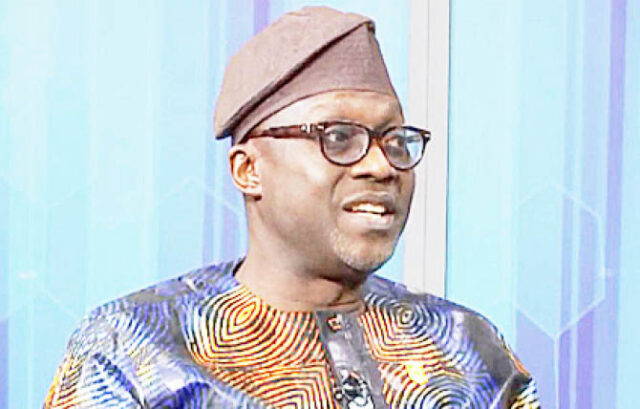The Manufacturers Association of Nigeria (MAN) has attributed poor state of the country’s power sector to lack of technical and financial capacity of the concessionaires, nearly 12 years after the generation and distribution segments were privatised. MAN said the lack in capacity has hindered the optimal power delivery and that the exercise is unfruitful.
MAN made the declaration yesterday in a public statement that decried the incessant increase in electricity tariff, which it said had hindered the performance of the manufacturing sector and growth of the economy.
The statement signed by Director-General of MAN, Mr. Segun Ajayi-Kadir, urged the government to commission a review of the performance of power Distribution Companies (DisCos) after the last unwarranted increase.
It also asked government to conduct a study on the impact of the increase on the manufacturing sector, in particular, and businesses and households, in general
Ajayi-Kadir urged the government to sincerely and critically interrogate the so-called cost reflective tariff template of the DisCos, and audit their level of commitment to investment in distribution infrastructure.
He emphasised that electricity was a critical input in manufacturing processes, with significant effect on production cost and prices of products.
The statement said, “It was based on the critical importance of energy security in achieving the industrial aspiration of Nigeria, that the power sector was privatised in 2013 to improve the scale of energy supply to the nation, particularly the industries.
“Unfortunately, this particular privatisation has not yielded the desired results. It is widely believed that this is because the operators in the value chain lack the technical and financial capacity to operate and deliver optimally.”
Ajayi-Kadir pointed out that the Nigerian power sector’s installed capacity, put around 10,000 megawatt (MW), had not been fully utilised due to the limited capacity of the power generating companies (GenCos) and DisCos to generate and distribute adequate electricity nationwide.
He said, “Despite the inability to meet the consumer demand, we have witnessed consistent increase in tariff without a commensurate and good quality supply.
“According to the National Bureau of Statistics (NBS), the electricity supply stood at 5,909.83 (Gwh) in Q2 2023 but reduced to 5,769.52 (Gwh) in Q1 2024 and 5,612.52 (Gwh) in Q2 2024, when the tariff increase of over 230 per cent was implemented.
“Thus, indicating 5.03 per cent decrease year-on-year and 2.72 per cent quarter-on-quarter.”
According to him, MAN has severally advocated increase in electricity supply from the abysmal average of 4,000MW of electricity per day for over 200 million people.
He said Nigeria needed more than 30,000MW of electricity to appreciably meet the growing electricity demand by businesses and households in the country.
Ajayi-Kadir also advised the government against yielding to any proposed increase in electricity tariff because it would be “inimical to the competitiveness of Nigerian products and businesses”.
He said such increase would also further exacerbate the effect of high cost of production, worsen the current inflationary pressure, aggravate the pressure on the disposable income of the average Nigerian, increase the unsold inventory of manufacturers, erode their profit margin, increase unemployment rate, and lead to closure of more private
The Nigerian government privatised the electricity sector in November 2013. The sector is divided into generation, transmission, and distribution.
Generation companies (GenCos) and distribution companies (DisCos) are now private entities. The government still owns the transmission company.
Nigeria has several power plants connected to the national grid and 11 distribution companies delivering electricity to homes nationwide.
While other states have one DisCo each, Lagos has two companies distributing electricity in the state alone.
The list of the DisCos and states they covered are as follow: Benin Electricity Distribution Company (Edo, Delta, Ekiti and Ondo); Kaduna Electricity Distribution Company (Kaduna, Kebbi, Sokoto and Zamfara); Kano Electricity Distribution Company (Kano, Katsina and Jigawa); Yola Electricity Distribution Company (Yola, Adamawa, Taraba and Yobe); Jos Electricity Distribution Company (Plateau, Bauch, Benue, Gombe and Benue); Abuja Electricity Distribution Company (FCT, Kogi, Nasarawa, and Niger); Ibadan Electricity Distribution Company (Oyo, Ogun, Kwara and Osun); Ikeja Electricity Distribution Company (Ikeja, Lagos); Eko Electricity Distribution Company (Eko, Lagos); Port Harcourt Electricity Distribution Company (Rivers, Akwa Ibom, Bayelsa and Cross River); Enugu Electricity Distribution Company (Enugu, Abia, Anambra, Ebonyi and Imo)
The power generation companies are Azura Power West Africa, Egbin Power Plc, First Independent Power Limited, Geregu Power Plc, Ibom Power Limited, Main Stream Energy Solutions, Niger Delta Power Holding Company, North South Power, Sapele Power, Pacific Energy Limited, Taopex Energy Services, TransAfam Power Limited and Trancorp Power Limited








